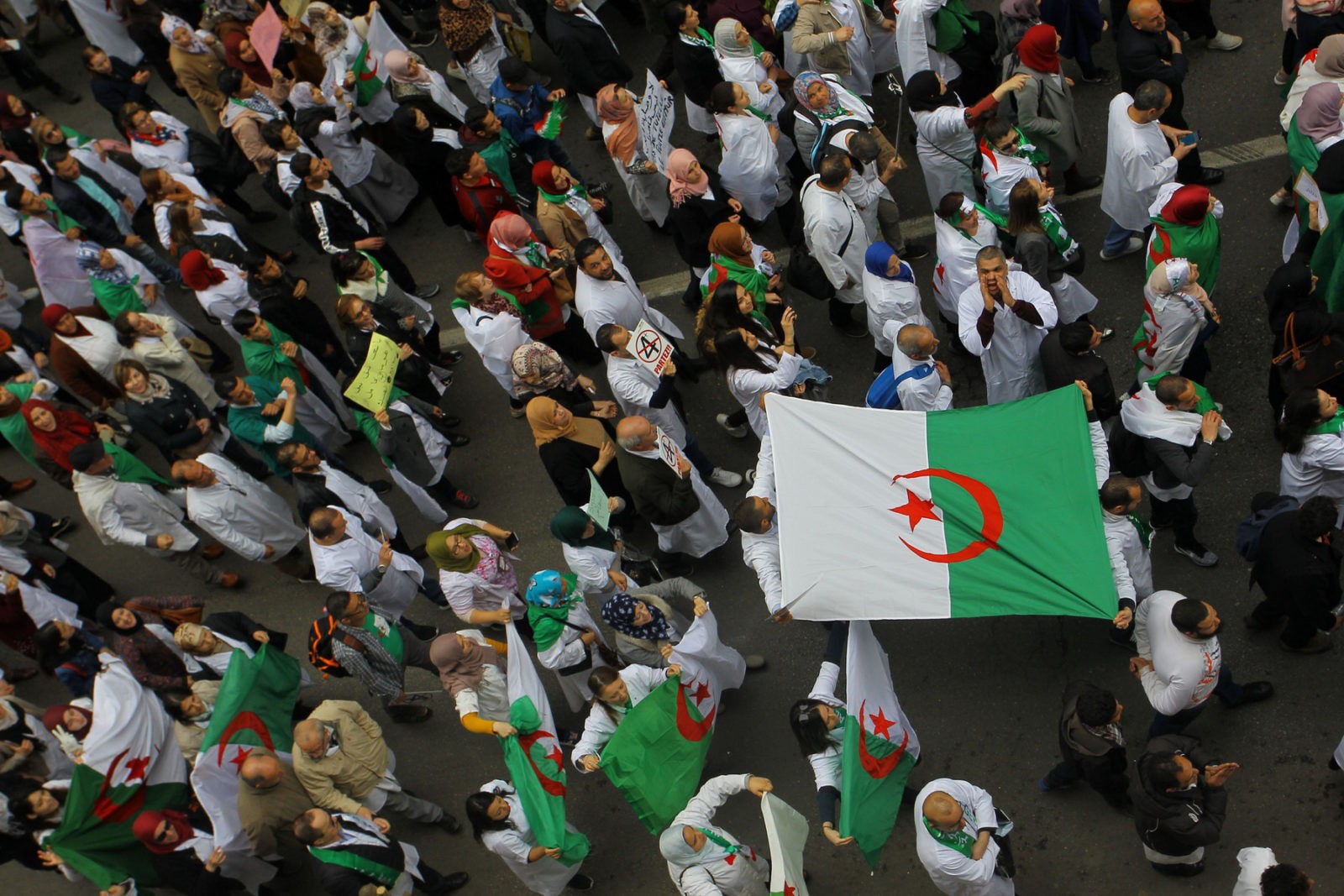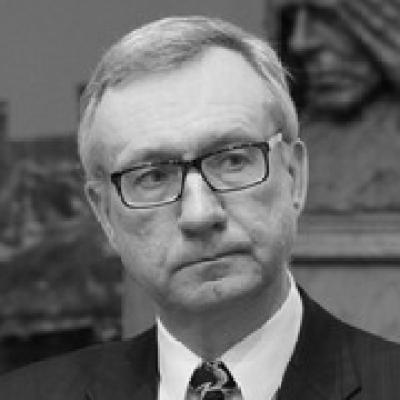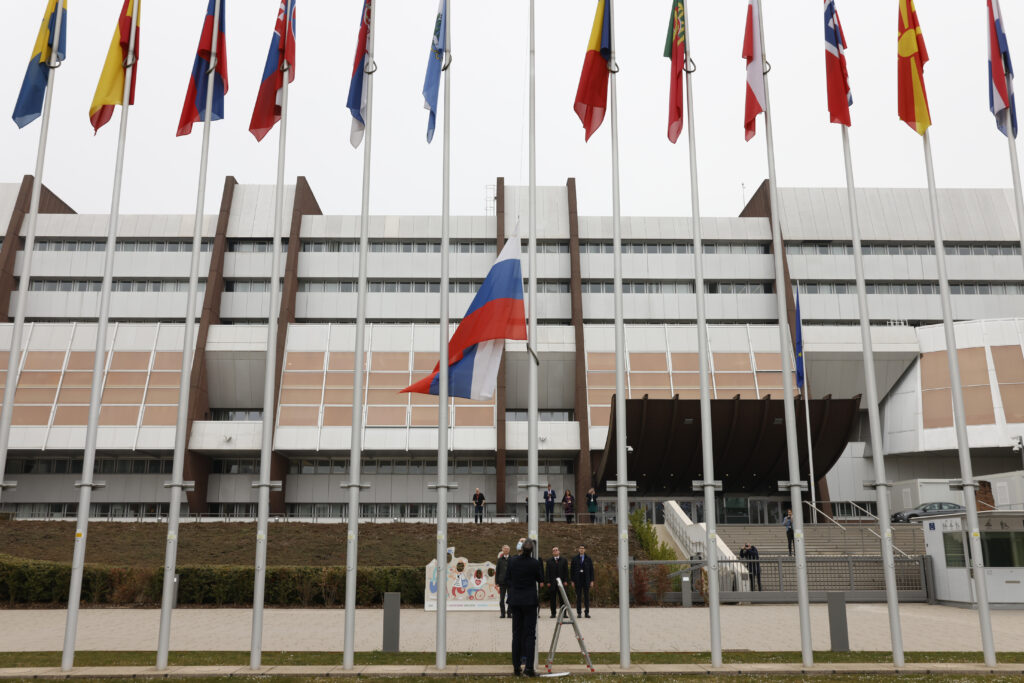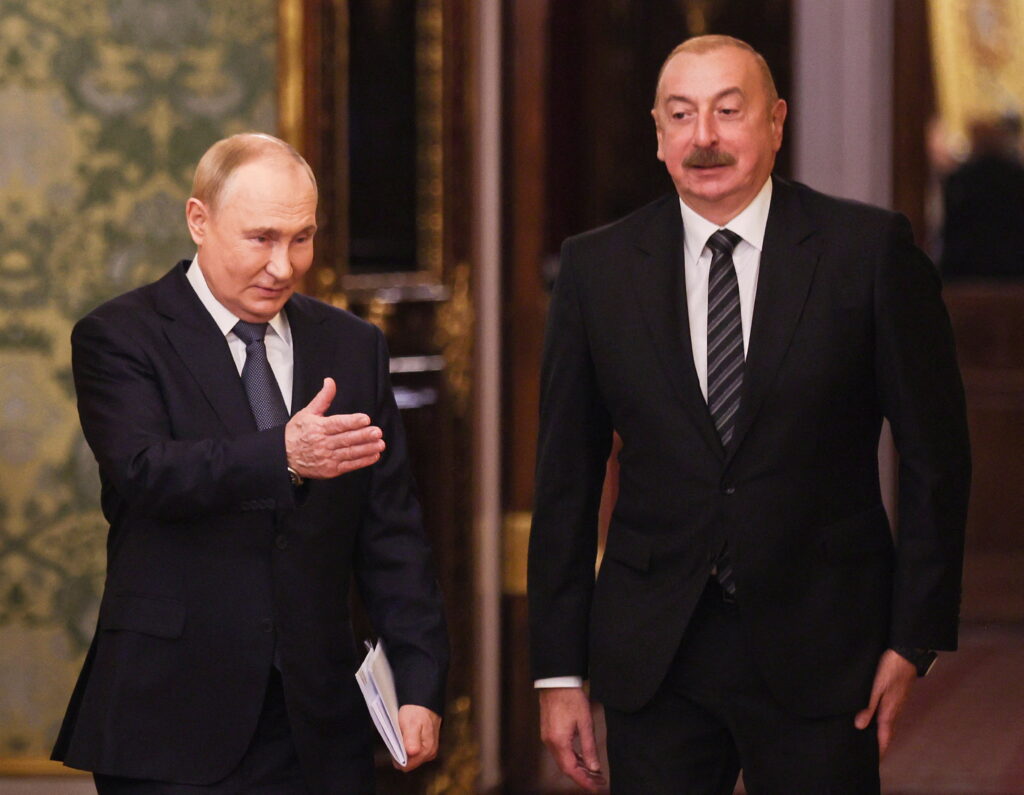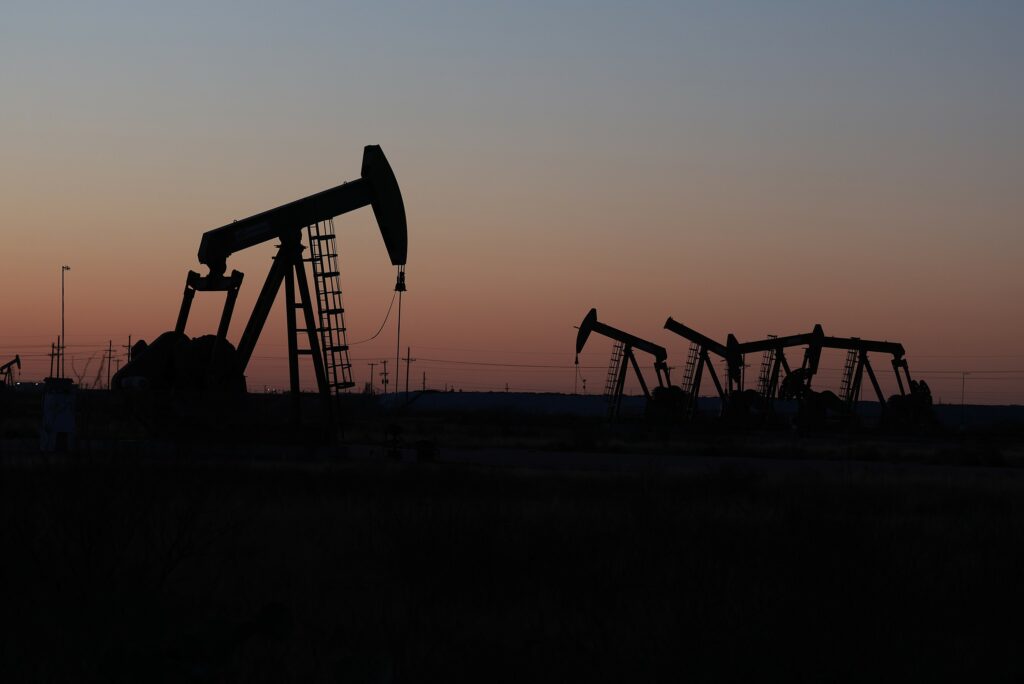Since late February, thousands of people have taken to the streets of cities across Algeria in protest. The trigger? An attempt by President Abdelaziz Bouteflika, who has ruled the North African country since 1999, to run for yet another term in office. For now, it looks like Bouteflika’s attempt has failed.
The events in Algeria have not gone unnoticed in faraway Moscow, and with good reason. Firstly, the Algerian strongman has only slightly outdone Vladimir Putin in terms of career advancement; Bouteflika’s next presidential term would have been his fifth, while his Russian counterpart has managed to slog on until his fourth (a fifth presidential term for Putin now seems a doubtful proposition.) Secondly, recent developments in Algeria and Russia demonstrate that Bouteflika and Putin have become prisoners of circumstance; their reelection (or even ejection from high office) is now largely determined by the elite groups which surround them. Finally, the biggest challenge to the Algerian president’s seemingly unshakeable leadership was mounted by students; in recent years the Russian authorities have recently experienced increasing difficulties with the same group, which has shown sustained support for Alexey Navalny.
Let’s consider these provocative parallels in more detail.
A Breath of Fresh Air
In September 1998 Algerian President Liamine Zéroual announced to the nation that early presidential elections were to be held, and that he did not intend to run in them. Six months later Abdelaziz Bouteflika, who had run as an independent candidate, was elected president with 73.8% of the vote.
At around the same time, the first President of Russia Boris Yeltsin was growing tired of his presidential duties which he found impossible to properly perform. Yeltsin prepared for his resignation by seeking for a reliable successor, and found it in Vladimir Putin, who had headed the Russian government since spring 1999. Russia’s future president was predetermined; Putin was elected president in March 2000, with 52.9% of the vote in the first round. For a little known figure who had never before held elected office, it wasn’t a bad result.
The successes of the two politicians rested on similar social dynamics in Algeria and Russia at the time. Neither Bouteflika nor Putin could boast of fame, let alone mass popularity, when they were elected, but they could respond to something else: a public demand for peace and «normality» which was becoming louder in both countries. Just as Russian society was exhausted and longed for stability after the turbulent 1990s, with its economic collapse and war in Chechnya, Algeria demanded the same: from 1991 to 2002, the country was rocked by a vicious civil war between the government and a variety of Islamist rebel groups. Over a hundred thousand Algerians lost their lives.
Bouteflika was an unlikely saviour. After the death of his patron President Houari Boumédiène in 1978, Bouteflika dropped out of politics and emigrated. Even while overseas, he refrained from criticising the regime of President Chadli Bendjedid and did not get involved with the opposition. When he returned to his homeland in the late 1980s, Bouteflika still remained in the shadows. Nevertheless, this did mean that his reputation was not marred by the repression of the Islamic Salvation Front, nor by the events of early 1992, when the military annulled the elections of December 1991 and set up a collective presidency known as the High Council of State.
For over two decades, it was as though Bouteflika the politician simply did not exist. Similarly, Putin’s political biography was also flawless; if only due to its near complete absence. The «man from nowhere» returned from East Germany to take up a job at the St Petersburg mayoral office, meaning that he had never occupied posts which could associate him with the «wild nineties,» with all the decade’s escapades, misdeeds, and scandals. When he was appointed head of government, Putin immediately and successfully moved against Chechnya, inspiring his future electorate who for the prior decade had ceaselessly complained about the impotence of «new Russia’s» leaders before the breakaway North Caucasus territory. Consequently, both Bouteflika and Putin made it to the highest echelons of power without compromising political baggage, and quickly associated themselves with law and order and the restoration of stability.
Bouteflika’s success in the 1999 Algerian presidential election was largely due to his identity as the «compromise candidate.» He had portrayed himself as the pragmatic, cool-headed diplomat, and that image proved to be very popular among ordinary Algerians, exhausted by the civil war, and among the political elite, which was starting to come to terms with the idea of coexistence with its former opponents. Bouteflika was perceived as the peacemaker par excellence: a figure capable of strengthening the fragile union between the military and moderate Islamists. Initially, Putin was also seen as a master of compromise, if only because it was in the interests of those powerful players who set him up in the president’s chair. These political conditions soon consigned him, at least at first, to moderation and taking more balanced positions.
If Putin is Russia, Bouteflika was Algeria
The two figures also matured politically in a similar way, albeit with a few differences. Bouteflika’s political longevity, and his transformation into one of the well-entrenched strongmen for which the Arab world is known, was largely due to his expert ability to balance the interests of key political clans in Algeria.
After winning its independence from France in 1962, Algeria became a one-party state dominated by the National Liberation Front (NLF). However, that dominance was not rock solid, and neither was Algerian political life monolithic. For example, in late 1978 and early 1979, the ruling NLF split into two camps: one side, among them Bouteflika, supported liberalising Algerian society and the country’s economy, in opposition to Chadli Benjedid and those who wanted to strengthen the country’s socialist course. By the late 1980s socialism had fallen out of fashion and a new era dawned for Algeria; one which left the political elite even more fragmented.
If Bouteflika acted with some discretion in the new role entrusted to him, Putin was never able to make peace with the constraints of his position. By 2008, he had turned the office of the presidency into a sun which all other planets in the Russian political system were made to orbit. But even this did not save Putin from the same problems that confronted Bouteflika. The existence of a dominant «party of power,» easily able to win any election on cue, does not mean the absence of separate clans and factions within Russia’s ruling elite. Each of these groups has its own goals and desires, its own appetites, and stands up for its own interests. Since there is no real multiparty system in Russian politics, it is up to the country’s ruler personally to bring some harmony to all this cacophony.
Doing this requires that Russia’s leading man play an important backstage role, as the arbiter between the «civilian» and «silovik» (military, interior ministry, and security forces — ed.) components of the country’s elite. This means that Putin, the Kremlin’s master for two decades, has now become indispensable for everyone; he has taken on a significance which has gone far beyond the boundaries of his formal political role. As Chairman of the State Duma Vyacheslav Volodin once put it, «if there is Putin, there is Russia.»
Therefore, if Putin really did want to leave his position, whether today or tomorrow, it is unlikely that he would be permitted to do so. Hence the endless series of reelections and term extensions stretching far over the horizon into Russia’s future. That’s how Russia’s elite likes it; after all, nobody would consider asking a galley slave whether he wants to row or not.
Similarly, by guaranteeing the interests of all the diverse factions within the Algerian elite, Bouteflika suited the country’s powerful very well. This high esteem was reflected in the recent spectacle of a wheelchair-bound Bouteflika being successfully nominated for a fifth term, as well as by earlier events. On the eve of presidential elections in 2009, constitutional amendments were made which removed the limit on the number of terms for which a presidential candidate could apply to run. As a result, Bouteflika was able to contest an election for the third time. By 2014, the Algerian president’s entourage had still found nobody else who was as palatable to the various factions of the elite. Thus the veteran president, who had suffered a stroke in 2014, came to power for the fourth time. Does the same unenviable fate await Putin? All we can say is that nothing rules it out.
There is a deeper lesson here. In the Algerian and the Russian experiences, the mechanisms by which «stability» was achieved and maintained entailed similar problems. In the short term, the policies pursued by Bouteflika and Putin placated societies gripped by civil unrest and helped them overcome the consequences of the deep economic and financial crises of 1998. For both countries, the 2000s were marked by enormous revenues from the energy sectors, a reduction in foreign debt, and an increase in gold and foreign exchange reserves. By the mid-2000s, GDP growth had reached 7% in Algeria and 8.5% in Russia. Yet in the long run, Bouteflika and Putin settled on «freezing» these existing gains, and key managerial decisions were reduced to the «correct» division of profits from the oil and gas rent. Horizons narrowed, and with them the possibility for larger scale and far sighted plans for the future. In the name of this «stability,» Bouteflika and Putin became trapped by circumstances of their own creation, inevitably leading their countries down a path of stagnation.
«Encore!»
The state’s lack of a longer term vision cannot but frustrate those sections of the population that are naturally future oriented. We are, of course, speaking about the youth. During the recent protests against Bouteflika’s fifth term, Algerian students made many arguments and statements which would be familiar to Russia’s young protesters. In short, the Algerian and Russian youth do not understand why their political class insists on offering them leaders whose merits all lie in the past.
Just as young Russians know little of the «glorious deeds» of the «early Putin» who won the Second Chechen War, young Algerians cannot easily recall the horrors of the country’s bloody conflict with the Islamists and Bouteflika’s role in ending it. As they see it, too much time has passed. Maybe they do not doubt that once, perhaps, the leaders of their societies really were dynamic and energetic, but now schoolchildren and students want to be sold promises of a better future, not the terrors of a receding past. It is becoming ever more difficult for young Algerians and their Russian peers to understand why, in the words of one popular Russian song, «we used to live for tomorrow, but today we live for yesterday.»
Furthermore, in a dynamically and constantly changing world, the very practice of a permanent presidency can only prompt rejection and resistance. In the era of the internet, unmanned vehicles, and Bitcoin, any fourth presidency looks utterly archaic, let alone a fifth. Monarchist models of rule are social systems aimed at maintaining and preserving the established order of things. Of course, a certain part of the political class inevitably sees the pleasant side of authoritarian regimes; yet the admiration they feel can hardly be said to be widespread, whether in Algeria or in Russia.
So Bouteflika’s story is an instructive lesson, and one which will definitely be studied in Russia from all perspectives. It is difficult to say whether the researchers will be heartened by their findings. But regardless of their attitude to the Algerian president, all interested parties will have to draw the same conclusion: if a magician can pull off a brilliant trick four times in a row, it will have to fail him eventually. And then his magic is gone.
